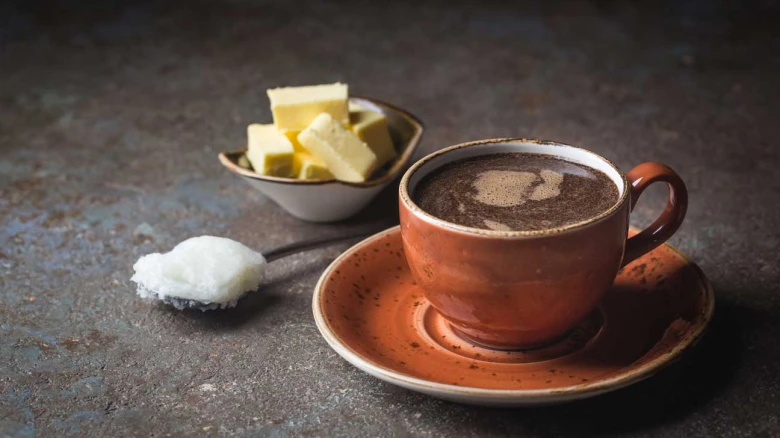And now, a well-known coffee chain, Starbucks, has launched a new range of olive-oil infused drinks, each created with a tablespoon of cold pressed, extra virgin olive oil.
Digital Desk: The issue with dietary trends that are promoted on social media is that nutritional logic is buried by popular endorsement. If coffee with butter was popular as a keto diet beverage a decade ago, coffee with ghee and olive oil is now. It was originally termed bulletproof coffee or keto (low calorie and high fat diet) coffee and was made with unsalted butter to replace breakfast as a complete energy boost for the body. The argument is that the butter delays digestion, extends the stimulating effect of coffee, and suppresses appetite all at the same time.
Despite many nutrition experts pointing out butter's high saturated fat level, it didn't stop there. Indeed, with numerous celebrity endorsements, coffee with clarified butter and ghee is considered as a stronger bet. And now, a well-known coffee chain, Starbucks, has launched a new range of olive-oil infused drinks, each created with a tablespoon of cold pressed, extra virgin olive oil.
But how secure are these coffee concoctions? "It is critical to carefully weigh the potential benefits and drawbacks of using olive oil or ghee into coffee. Although there has been little scientific investigation on these exact combos, both coffee and olive oil/ghee include compounds that have great nutritional benefit on their own. "But, combining them could result in a calorie excess," says Ushakiran Sisodia, Head of Food and Nutrition at Nanavati Max Super Speciality Hospital in Mumbai.
"Coffee is known to contain antioxidants that can boost cognitive function and physical performance, while olive oil is a source of mono-unsaturated fats associated to improved cardiovascular health and lower risk of heart disease. Olive oil is also high in polyphenols, which function as antioxidants and have anti-inflammatory properties, hence preventing chronic diseases. Similarly, ghee is a common addition to coffee among ketogenic diet adherents since it gives long-lasting energy and increases mental clarity. Nonetheless, ghee contains saturated fat. "Adding olive oil or ghee to coffee might increase the total calorie and fat content of your daily diet, which may not be acceptable for everyone, particularly those with specific dietary needs or weight management goals," Sisodia writes.
Why has it become fashionable to drink coffee with ghee? Possibly the acceptability is due to the fact that those who are lactose intolerant prefer ghee to milk because the refining process of ghee removes all milk solids, carbohydrates, and protein. Some individuals feel that ghee, which is high in calcium, can counteract the acidic punch of coffee if consumed first thing in the morning on an empty stomach. While ghee is a saturated fat, it also contains lipids such as omega 3, 6, and 9 and is high in micronutrients. 100 gm of ghee contains around 61% of the daily recommended value of vitamin A, 14% of the daily recommended value of vitamin E, and 11% of the daily recommended value of vitamin K. Since fats transport nutrients to all parts of the body, ingesting ghee is wrongfully considered as a healthy dietary practice.
According to Sisodia, the usage of saturated fats as a source of daily calories should be limited in all types of diets. "Saturated fat should account for no more than 120 calories (or around 13 grams) of a 2,000-calorie diet. That's one tablespoon of ghee, which most Indians use as a cooking medium for a variety of other foods. This is undeniably harmful to one's heart health. Furthermore, ghee coffee lacks the vitamins and fibre load that should be included in the morning buffet to help the body to fuel up for the day. "Regularly drinking coffee with ghee in the morning may result in dietary imbalance," she warns. Similarly, while rich in healthful monounsaturated fats, a spoon of olive oil adds 120 calories to coffee, which, as a habit developed over time, can raise the total calorie burden. "As with any dietary change, it is critical to proceed with caution and get counsel from a trained dietitian or nutritionist to establish whether adding olive oil or ghee to your coffee is acceptable for your unique needs and health goals," Sisodia adds.


Leave A Comment